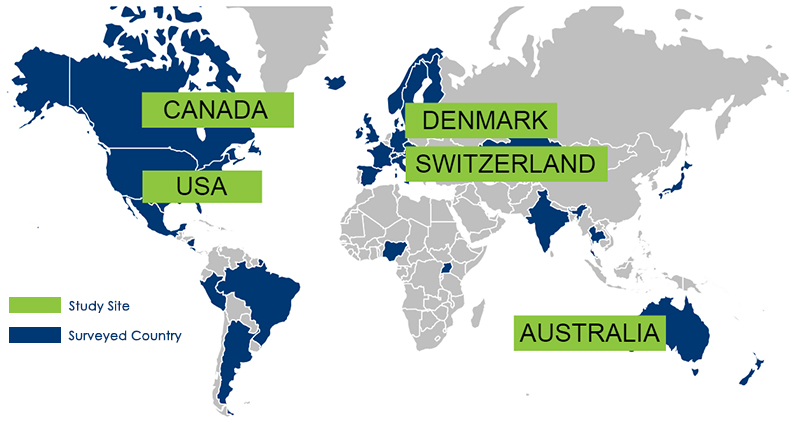A new NIAAA-funded 4-year study will be the first multinational project to assess the extent and impacts of harms experienced due to heavy drinking by the drinker’s family, friends and strangers. It will provide new insights into how different social and cultural contexts and alcohol-related policies impact such harms. While the study of the broad array of alcohol’s harms to others (AHTO) is a fairly new area of research, previous work has looked at particular second-hand harms from drinking such as car accidents, injuries and fetal alcohol spectrum disorders (FASD).
This project is led by Dr. Thomas K. Greenfield, and Professors Sharon Wilsnack (of the University of North Dakota, School of Medicine & Health Sciences), and Kim Bloomfield (of Aarhus University, Centre for Alcohol and Drug Research, Copenhagen Denmark) are Multiple Principal Investigators on PHI/ARGs new R01 Alcohol’s Harm to Others: Multinational Cultural Contexts and Policy Implications (R01 AA023870) supported by NIAAA. These ARG UND and Aarhus senior investigators are responsible for project direction of this 4-year project, for which the acronym is GENAHTO (Gender and Alcohol’s Harms to Others). The new project extends earlier NIAAA-supported cross-national GENACIS project (Gender, Alcohol and Culture: an International Study) and like that now-completed project, the new study involves a large team of international scientists working together on harms to others analyses involving 36 countries.
Project sites and co-investigators are located at major research institutions in the US, Australia, Canada, Denmark and Switzerland. At the ARG site, Dr. Greenfield is joined by co-investigator Katherine Karriker-Jaffe, as well as Drs. Priscilla Martinez and Libo Li, serving as key biostatistician.
Their grant will analyze comparable population surveys with data providing information on differences between countries, and regions within countries, to see how regional drinking cultures might modify effects of national or state policies on the rates of alcohol’s harms to others. Measures will also include differences in socioeconomic conditions, including income and gender inequalities.
“This project is the first multi-country study to test hypotheses about how someone’s drinking can lead to consequences for others and how others heaving drinking may harm the respondent, very similar to the work that’s been done on second-hand smoke and its associated harms,” said Greenfield. “The work to date on alcohol’s harms has mostly been focused on accidents and injuries, so looking at it from every angle will provide us with a better idea of how other people’s drinking affects both strangers and those known to the survey respondent and their communities.”
The analyses will provide the most detailed multinational findings to date. With these findings, the researchers hope to identify opportunities for better-focused interventions and policies to reduce alcohol’s second-hand effects under a range of environmental conditions.
This research is supported by the National Institutes on Alcohol Abuse and Alcoholism of the National Institutes of Health under award number R01AA023870.



